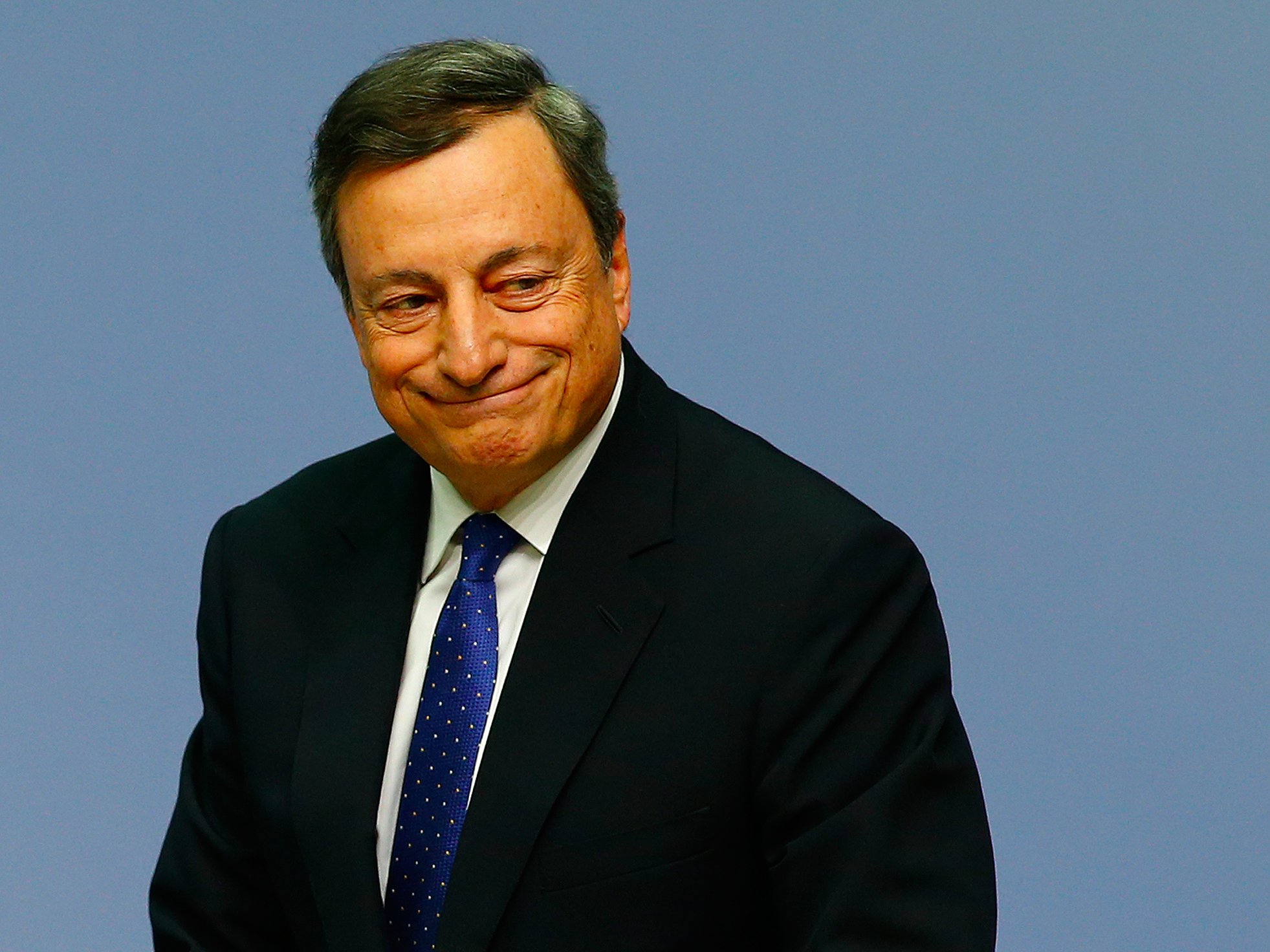
The European Central Bank left monetary policy on hold at the first meeting of its Governing Council in 2017 on Thursday.
The bank announced that all of its key interest rates, as well as the scale of its quantitative easing programme, remained unchanged after the conclusion of the meeting.
That means the ECB’s base interest rate stays at 0%, while its deposit rate is -0.4%.
Its current quantitative easing programme is set at €80 billion per month and is scheduled to be extended until December, but at a decreased rate of €60 billion from March. That decision was announced at the final meeting of 2016 in December.
“The Governing Council continues to expect the key ECB interest rates to remain at present or lower levels for an extended period of time, and well past the horizon of the net asset purchases,” the ECB said in a statement released alongside the decision.
This was expected, and had the ECB made any tweaks to those policies this month, it would have provided a significant shock for the markets.
The ECB’s statement reiterated that it is willing to extend QE beyond its current horizon, saying: “If the outlook becomes less favourable, or if financial conditions become inconsistent with further progress towards a sustained adjustment in the path of inflation, the Governing Council stands ready to increase the programme in terms of size and/or duration.”
More likely to rock the boat during Thursday’s proceedings will be the comments of President Mario Draghi when he speaks to reporters after 1.30 p.m. GMT (2.30 p.m. CET; 8.30 a.m. ET). Key to January’s meeting will likely be questions about the necessity of extended stimulus given the recent acceleration of growth and inflation in the eurozone.
Draghi is likely to note that much of that recovery has been driven by the ECB’s policies and flag political risks from elections in Germany, France, and the Netherlands coming up this year.
The euro barely flinched after the decision was announced, remaining around 0.3% higher against the dollar at $1.0663, while eurozone bond yields moved a little lower.
NOW WATCH: The wealth of these 8 men equals the bottom 50% of the entire world













